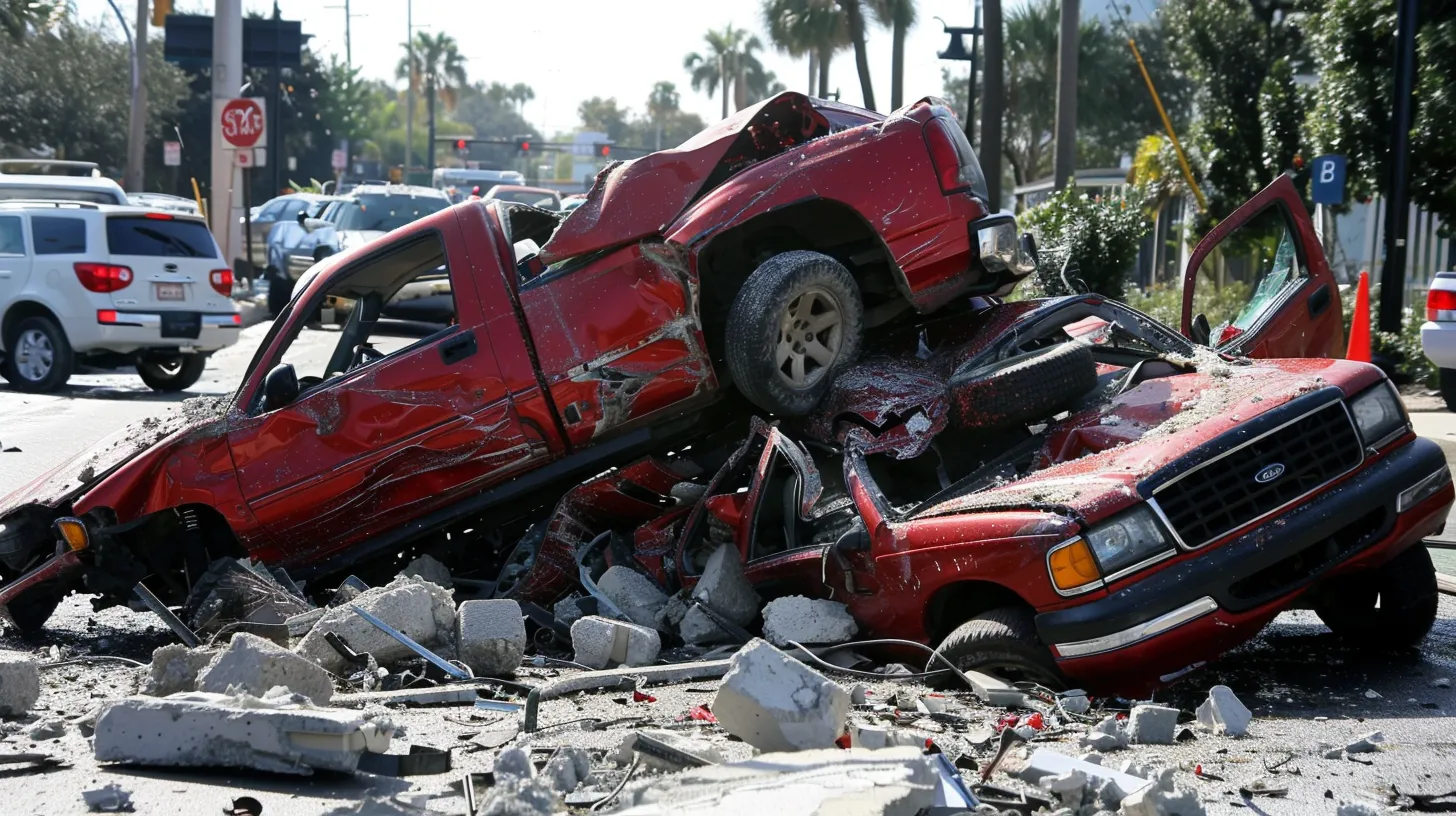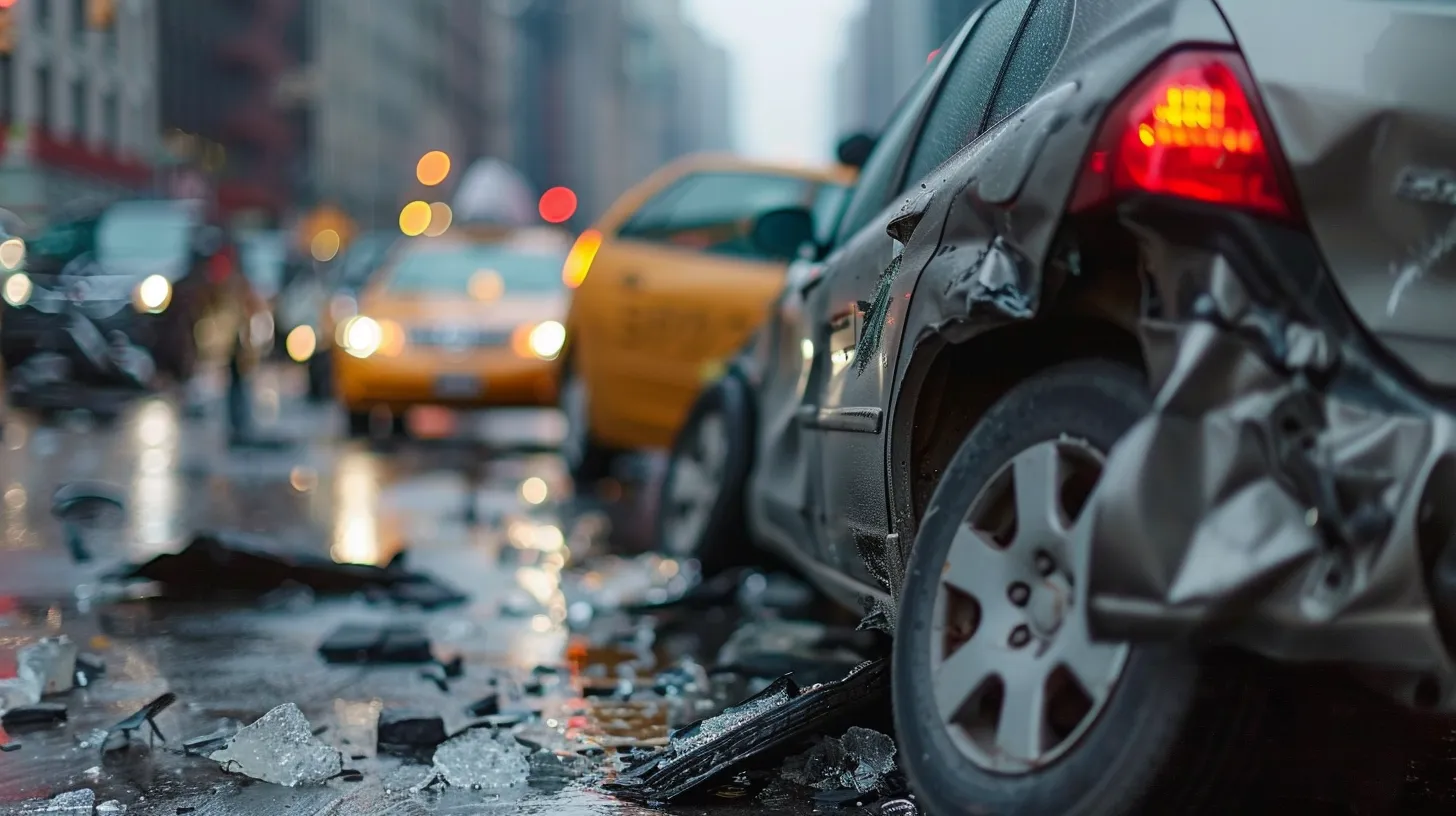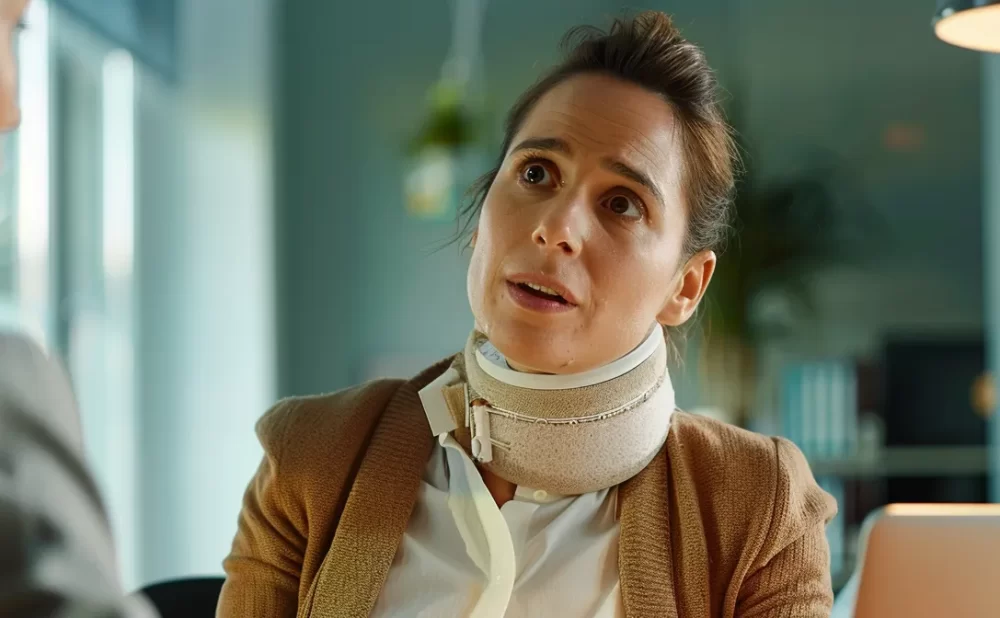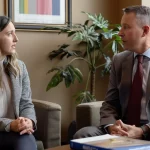Have you ever been left grappling with expenses after an Uber or Lyft mishap in Texas? Understanding your rights can be as essential as immediate medical care from a physician. This post will guide you through the necessary steps following a rideshare accident, provide you with practical tips to calculate your settlement accurately, and navigate the often complex claims process with these companies. If you’re suffering from injuries or dealing with the financial fallout of an accident, our insights will equip you with strategies to maximize your Driver Accident Settlement amount. Learn how the duty of care established in Texas law can work in your favour and why partnering with a seasoned attorney is a crucial step toward securing the court’s support for your rightful compensation.
Understanding Your Rights After an Uber or Lyft Accident in Texas
Navigating the aftermath of an Uber or Lyft incident in Texas hinges on understanding the intricate details of rideshare companies’ legal responsibilities, the distinctions between driver and company liability, and the frequent causes of such accidents. Knowledge of these areas is essential for victims seeking compensation for injuries, including neck trauma or loss of consortium. Critical is awareness of rideshare policies like Lyft’s insurance coverage, which can significantly impact the settlement. This introduction sets the stage for a deeper analysis on how to research and maximum compensation for your claim.
The Legal Obligations of Rideshare Companies
In the aftermath of car accidents involving rideshare services, companies like Uber and Lyft have a duty to manage claims through their designated claims adjuster. This process begins when someone reports an incident and involves evaluating the extent of property damage and personal injuries, such as a sprained ankle or more severe harm. For passengers and third parties alike, understanding the legal obligations held by these companies under their insurance policy is crucial to ensure rightful compensation covers every expense incurred.
Their policy often delineates clear boundaries of liability, which is vital when establishing fault in an accident. While drivers are typically independent contractors, Uber and Lyft must ensure adequate insurance coverage is in place during the time of an incident. This means that in many cases, victims may receive settlements from the rideshare company’s insurer rather than the individual driver’s. Familiarity with the specific terms of these policies can significantly streamline the settlement process for those injured in these car accidents.
Distinguishing Between Driver and Company Liability
In the wake of an Uber accident, delineating where the driver’s responsibility ends and the company’s begins is paramount, especially when pursuing compensation for severe outcomes such as a spinal cord injury or other catastrophic injuries. Victims need to know that although drivers are considered independent contractors, Uber and Lyft have coverage in place during rides that may provide a more substantial financial safety net for those filing a car accident claim.
Understanding the nuances of company versus driver liability can greatly influence the outcome of a truck driver’s or rideshare passenger’s accident settlement. Should the driver’s actions fall outside the scope of their platform’s operational guidelines, the company might not be accountable. However, incidents that occur when the driver is logged into the app and providing a service typically fall under the company’s liability, offering recourse for victims suffering grievous losses like a catastrophic injury.
Common Causes of Uber and Lyft Accidents in NYC
Rideshare accidents in Texas often stem from complex urban traffic patterns and driver error. For instance, a moment’s distraction can lead an Uber or Lyft vehicle to miss a stop sign, risking a collision with a van or another car crossing the intersection. Such incidents not only jeopardize the safety of the rideshare passenger but also that of pedestrians and other road users, underlining the necessity for utmost vigilance in the lanes of the city.
Changing lanes abruptly without proper signaling or failing to observe the right-of-way can result in a rideshare accident that subjects patients to serious injuries. In a bustling metropolis like Texas, where multiple forms of transportation converge, the margin for error is notably slim. Victims of these accidents require an informed strategy to navigate the legal landscape and ensure that their rights, and potential settlement, are maximized following such chaotic situations.

Steps to Take Immediately After a Rideshare Accident
After an Uber or Lyft car accident in Texas, prompt action is imperative for anyone aiming to maximize their settlement, especially if injuries such as a rotator cuff tear have occurred. Documenting the scene is your first step; gather evidence carefully, taking photographs and noting down vital details. It is also essential to report the accident to both authorities and the involved companies without delay. Meanwhile, prioritize your health by getting an evaluation for any car accident injury, no matter how minor it may seem, and maintain meticulous records of medical care. Finally, ensure to notify your insurance provider about the incident as a passenger or driver involved. These critical moves form the foundation for a strong claim, leading to the detailed strategies covered in the subsequent sections.
Consulting with an Uber Accident Lawyer soon after the incident is crucial. An experienced attorney can guide you through the legal process, help you gather necessary evidence, and advocate for your rights to ensure you receive the compensation you deserve.
Documenting the Scene and Gathering Evidence
After an accident involving Uber or Lyft, it’s crucial to document all aspects of the scene. Snap clear photos of the vehicles, the surrounding area, and any other pertinent factors such as traffic signals and road conditions. Capturing these details can help establish causation, contributing to the complexity of your claim under Texas’s statute of limitations.
In cases where injury is suspected, it’s important to observe and record signs and symptoms that may indicate trauma, particularly to vulnerable areas such as the shoulder. A timely and accurate documentation of such signs can be vital for nursing a compensation claim to its maximum potential, as it often substantiates the direct impact of the accident on one’s health and wellbeing.
Reporting the Accident to Authorities and Companies
Following an auto accident involving rideshare services such as Uber or Lyft, it’s essential to report the incident promptly to local law enforcement and the corresponding rideshare company. This step is not just a procedural necessity; it lays the groundwork for a settlement claim, allowing victims to seek compensation for damages, and, if applicable, punitive damages stemming from uber accidents or incidents of negligence. The report constitutes a formal acknowledgment of the incident, creating an official record that can be instrumental when pursuing rightful compensation.
In Texas, the immediacy of reporting to authorities helps ensure that key details are documented accurately, while notifying Uber or Lyft initiates the process of utilizing their accident response mechanisms. Victims should be mindful of any fees or specific reporting requirements outlined by the rideshare company. A timely and detailed report of the accident is critical as it can significantly influence the management and potential outcome of your claim, especially when seeking to recover from injuries or property damage caused by the accident.
Seeking Medical Attention and Keeping Records
Securing immediate medical attention following a rideshare accident is indispensable for your Uber accident claim in Texas. A detailed medical record post-accident not only contributes to your health recovery but is also pivotal in substantiating claims for pain and suffering. When an ambulance arrives, ensure that all injuries are assessed, as these initial medical evaluations and treatments become critical pieces of evidence in your accident claim.
It’s equally crucial to maintain a comprehensive log of all medical treatments and consultations related to the hit and run or other incidents. Timely documentation, including dates of visits, diagnoses, and prescribed treatments, bolsters your claim – particularly when seeking compensation for ongoing pain and suffering caused by the Uber or Lyft accident. These records serve as an unassailable testament to the impact of the accident on your personal and professional life.
Notifying Insurance Providers Promptly
Contact your insurance provider immediately after a rideshare accident. Swift reporting is crucial to ensure the collection of surveillance data or other time-sensitive information that can support a work accident claim. A knowledgeable lawyer can advise on the intricacies of claiming compensation for loss of use or other damages, which could enhance the odds of a fair Lyft settlement.
Vigilance in early communication with your insurer after an accident not only fulfills policy requirements but also initiates the process of record-keeping which is indispensable for litigation. An effective strategy advised by legal experts is to provide a factual account of the incident, ensuring this initial report is devoid of speculation that might prematurely place fault or undermine the intricacies of your case, hence safeguarding the potential value of your settlement.
Calculating the Value of Your Driver Accident Settlement
Determining the value of an accident settlement following an Uber or Lyft incident in Texas requires careful assessment. This involves calculating economic damages such as medical expenses and lost wages, as well as evaluating non-economic impacts like pain and suffering. In Texas, comparative negligence may adjust the claim based on the injured party’s level of fault. Thorough knowledge of Uber and Lyft insurance policy ceilings is essential when estimating potential recovery amounts. Each component commands attention as they cumulatively influence the final compensation for injuries sustained.
Assessing Economic Damages: Medical Bills and Lost Wages
In the midst of pursuing a lawsuit for a rideshare accident, accurate assessment of economic damages is vital for securing a fair Uber settlement. These damages include the cost of medical bills, which can escalate rapidly with procedures like arthroscopy, and the potential for long-term disability affecting future earnings. Comprehensively documenting these expenses ensures that accident claims truly reflect the financial burden endured as a result of the incident.
Lost wages are a critical element in the valuation of accident claims and contribute significantly to the final compensation in an Uber or Lyft lawsuit. The inability to work, whether temporary or permanent, can impose a substantial economic strain on victims. A careful calculation of lost income, considering both current and projected earnings, helps in establishing a foundation for the financial redress necessary to address these economic misfortunes effectively.
Evaluating Non-Economic Damages: Pain and Suffering
In the realm of personal injury cases in Texas, non-economic damages are a pivotal aspect of any wrongful death claim or injury lawsuit. When a Long Island attorney evaluates pain and suffering, they must translate the intangible impacts on quality of life and emotional wellbeing into a monetary value. These may encompass the trauma of losing companionship after a wrongful death or the disruption of normal life, including loss of enjoyment or chronic pain that impedes daily activities.
Navigating the complexities of a rideshare accident claim, especially on busy routes in urban centers like Long Island, necessitates a clear understanding of how pain and suffering can affect one’s income and outlook. An experienced attorney can articulate the necessary steps for sanitation workers or individuals affected by a tragic accident, guiding them towards just compensation that acknowledges the silent yet profound losses beyond immediate physical injuries.
The Impact of Comparative Negligence in Texas
In Texas’s legal landscape, the doctrine of comparative negligence can leave car accident victims feeling overwhelmed when it comes time to settle an Uber accident lawsuit. If, for instance, a driver, while working for a rideshare service, is involved in a collision on a busy street and is found partly at fault, the compensation received could be reduced proportionally to their degree of fault. This underscores the importance of thorough legal representation that can negotiate assertively on behalf of the victim, particularly when mixed liability is a factor.
For those confronting the aftermath of a slip and fall or sustaining a bone fracture in a rideshare vehicle, understanding comparative negligence is crucial. This rule does not bar recovery even if the victim is partially responsible, but it does adjust the settlement accordingly, which can significantly influence the final outcome of an Uber accident lawsuit. Working with an attorney experienced in this subtlety can help victims navigate these complex waters, striving to ensure the settlement accurately reflects the trauma endured.
Understanding Insurance Policy Limits for Uber and Lyft
For construction workers or any professionals who suffer back pain or other injuries resulting from Uber car accidents while on the job, understanding insurance policy limits is crucial. Uber and Lyft each have different periods when their insurance coverage is active, which can affect the settlement amount in the case of an accident. This information is essential for injured parties when documenting their employment status and the details of the crash, as they seek compensation for damages and loss of income.
It’s important to recognize that the level of coverage provided by Uber and Lyft can vary significantly depending on whether the driver is logged into the app, waiting for a ride request, or actively driving a passenger. This can influence a driver’s personal insurance responsibility and the subsequent recovery potential for individuals involved in uber car accidents. Thorough documentation of the accident circumstances and understanding the insurance thresholds are vital steps toward achieving a fair settlement.

Navigating the Claims Process With Uber and Lyft
Navigating the claims process with Uber and Lyft requires a deft understanding of the steps involved in filing a claim against the rideshare company’s insurance, skillfully dealing with insurance adjusters, confronting common challenges that arise in rideshare accident claims, and discerning the role of arbitration in resolving disputes. Victims must advocate for themselves, particularly in incidents involving drunk driving or other complex scenarios. This ensures they obtain proper legal advice and address any bad faith practices by insurers. The following sections guide you through navigating these complexities with confidence, protecting your rights, and maximizing your vehicle-related claims.
Filing a Claim Against the Rideshare Company’s Insurance
To initiate a claim against a rideshare company’s insurance policy, such as that held by Uber or Lyft, victims must first gather and submit their detailed medical record to confirm the nature and extent of injuries sustained in the vehicle accident. Insurance law guides this procedure, requiring timely notification to the insurer and adherence to strict filing guidelines. Proper documentation is paramount, as it facilitates the verification process and establishes the grounds for your claim—a decisive step in the claims process for both the rideshare passenger and the driver.
Once the claim is filed, it’s essential to understand the nuances of the Lyft driver app or Uber’s equivalent, especially if the incident involved truck accidents where multiple parties and insurers may be engaged. The driver app serves as a crucial interface for reporting the accident within the context of a trip. Awareness of the specific coverage active at the time of the accident—the driver logged in awaiting a ride request versus transporting a passenger—can significantly influence the claims process, as these details directly impact the applicable policy limits set by vehicle accident insurance law.
Dealing With Insurance Adjusters Effectively
In the midst of a car accident lawsuit, successful negotiations with insurance adjusters are imperative to avoid a case’s premature failure. These professionals, representing the auto insurance company, scrutinize claims for inconsistencies, often using them as grounds for reduced settlements. Having an expert versed in accident law on your side can counteract such tactics, ensuring that the full extent of your losses, including repercussions as severe as paralysis, are acknowledged and compensated.
Conversely, handling conversations with insurance adjusters independently requires careful strategy, as their expertise lies in protecting the insurer’s interests. A thorough understanding of auto insurance policies and the ability to articulate the impact of the accident cogently can fortify one’s position. Commencing dialogue with clarity and confidence, armed with ample documentation, can lead to outcomes that favor the victim, reinforcing the importance of preparation and knowledge in these exchanges.
Common Challenges in Rideshare Accident Claims
One of the common challenges plaintiffs encounter after a Lyft car accident is dealing with possible long-term health complications that may not be immediately apparent, such as spinal disc herniation. These conditions can cause chronic pain or infection and require ongoing medical care. The car accident settlement must account for these needs, demanding a thorough understanding of future healthcare requirements to secure appropriate compensation.
Furthermore, it’s not uncommon for those involved in rideshare accidents to face challenges in proving the extent of their injuries to insurance companies. For instance, a plaintiff suffering from spinal disc herniation may have difficulty demonstrating how the injury directly correlates with the Lyft car accident, especially if pre-existing conditions are involved. A detailed medical report linking the incident to the injury is paramount in these situations to maximize the potential car accident settlement.
The Role of Arbitration in Uber and Lyft Cases
In Uber and Lyft accident cases in Texas, arbitration serves as a critical avenue for victims seeking compensation without the protracted process of court litigation. For those who have endured physical therapy for injuries like a rotator cuff tear or nerve damage, arbitration offers a swift resolution, potentially expediting the receipt of much-needed funds to cover their medical expenses and losses. This method is structured to encourage fairness, frequently allowing victims to present evidence of fault and receive an impartial hearing away from the complexities of premises liability laws.
However, it’s essential to recognize that opting for arbitration can sometimes mean waiving the right to sue in court, which can influence the strategic approach to your claim. Victims dealing with the long-term effects of an accident, such as ongoing nerve therapy, need to navigate the arbitration process with expertise. Understanding fault and damages is crucial to securing a comprehensive settlement. By engaging in arbitration, both sides can present their case, and an arbitrator’s decision can resolve the matter effectively, often leading to a fair settlement without the uncertainty of a trial.

Strategies to Maximize Your Settlement Amount
To secure the highest possible payout in an Uber or Lyft accident settlement in Texas, steering clear of missteps that devalue claims is crucial. Precise medical records play a pivotal role, while leveraging expert witnesses and accident reconstruction can tip the scales in your favor. Engaging in strategic negotiations with insurance companies, supported by a thorough understanding of the relevant law and the details of your insurance policy, is also essential. This section will outline strategies to navigate these aspects proficiently, whether you’re on Interstate 495 or a city street, ensuring your personal injury claim meets its full potential.
Avoiding Common Mistakes That Lower Settlement Value
In the trek toward a considerable auto accident settlement, one pivotal error that often undermines a car accident case is settling too quickly. Victims might jump at an initial offer post-accident, yet this haste can result in compensation that falls short of covering long-term medical costs or adequately compensating for the ongoing impacts of a stroke or similar grave injuries.
Moreover, neglecting to holistically present all the facts of their accident can drastically reduce the value of a claim. It’s essential for individuals to meticulously document every detail, linking every injury directly to the collision. This rigorous approach can significantly bolster the strength of car accident claims, ensuring that victims receive a settlement reflective of all their losses and suffering.
The Importance of Detailed Medical Documentation
Accurate and comprehensive medical documentation is the cornerstone of substantiating claims in Uber and Lyft accident cases in Texas, especially when injuries result from negligent acts like texting while driving. Meticulous notes on the extent of tissue damage or required nursing home care solidify the causal link between the collision and the injuries claimed. Staten Island residents involved in such accidents must ensure that their records detail every doctor’s visit, diagnostic test, and prognostic discussion to underpin their settlement negotiations effectively.
In the chaotic aftermath of a rideshare collision, where a traffic light was ignored or a sudden stop necessitated, clear and detailed medical records serve as crucial evidence. Such documentation not only establishes the nature and severity of the injuries sustained but also reinforces the timeline of events, making it considerably more challenging for insurers to dispute claims. This scrutiny ultimately assists victims in recovering a settlement that fully accounts for the true scope of their losses and facilitates their path to recovery.
Leveraging Expert Witnesses and Accident Reconstruction
In the complex pursuit of a fair settlement after rideshare accidents, incorporating expert witnesses and accident reconstruction often proves crucial. When a case involves severe injuries such as amputation, expert testimony can elucidate on the intricacies of product liability or the nuances of vehicle insurance, providing the jury or insurers with a clearer picture of the sustained injuries and their implications on the claimant’s quality of life. This strategic move lends credence to the injury claim, substantiating the need for a more substantial settlement.
Accident reconstruction, on the one hand, can offer a dynamic portrayal of the incident, capturing details that may be overlooked, such as the role of a tow truck in post-collision processes or the exact point of impact, which could suggest product failures. This methodical approach ascertains the mechanics behind the accident, offering tangible proof to support an injury claim that hinges on detailed analysis rather than conjecture, thereby enhancing the potential compensation in vehicle insurance settlements.
Negotiation Tactics With Insurance Companies
In negotiating a Lyft claim, positioning yourself as a strong defender of your rights is essential. Assertive communication with insurance companies, coupled with concrete evidence from traffic camera footage or third-party witnesses, can significantly influence accident settlements. The approach should be methodical, presenting a coherent narrative of the incident to highlight the gravity of the event and its repercussions on your personal life.
For instance, if a dog bite occurred during an Uber ride, causing substantial harm, detailing this unique situation will underscore the need for a robust settlement. Effectively presenting this case to insurance companies requires a clear depiction of the incident and its impact. This approach ensures the victim’s perspective remains central throughout the legal proceedings. Insurers respond to well-substantiated claims, thereby necessitating meticulous preparation and presentation for a favorable accident settlement resolution.

Why Hiring a Texas Rideshare Accident Attorney Matters
In the intricate process of pursuing a driver accident settlement in Texas, enlisting a skilled rideshare accident attorney can greatly enhance the prospects of a favorable outcome. An attorney plays a pivotal role in ensuring they handle every aspect of your case, from selecting the jury to presenting compelling testimony, with adept precision. Choosing the right attorney is crucial, one who will meticulously investigate your claim, understand the nuances of negotiating deductibles, and secure your entitled personal injury protection benefits. Additionally, a knowledgeable lawyer will navigate the critical legal deadlines and statutes of limitations in Texas effectively, ensuring that your rights are upheld throughout the legal process. The subsequent sections delve into the significance of these factors in building a robust claim for your settlement.
How Legal Representation Enhances Settlement Outcomes
Securing the representation of a seasoned attorney can significantly enhance the outcome of motor vehicle accident claims in Texas. Expert witnesses often play a crucial role in car accident cases, and lawyers adept in working with these professionals can effectively leverage their testimony to establish liability and the extent of property damage. Their assistance makes the legal process more navigable for victims and maximizes the potential compensation for losses sustained in motor vehicle accidents.
An attorney’s expertise goes beyond courtroom advocacy, encompassing a deep understanding of the nuances in motor vehicle accident law. In complex car accident cases, they can dissect the details to build a compelling narrative, focusing on key elements like the severity of property damage and the impact of injuries on quality of life. This focus ensures that clients have a powerful voice in settlement negotiations, increasing the likelihood of receiving a fair settlement that truly reflects the gravity of their experience.
Selecting the Right Attorney for Your Case
Selecting the right attorney after an uber car accident in Texas is about more than just finding legal counsel; it’s about partnering with someone who understands the unique challenges that come with a rideshare case. The right lawyer will know the intricacies of Texas law, the nuances of determining liability, and the smart strategies for maximizing the percentage of your settlement. Their familiarity with the local legal landscape, including knowledge of local transportation laws—whether your accident occurred on a busy street or near the stairs of a subway station—can be the difference in your case.
Your choice of attorney should also have experience navigating cases involving major rideshare platforms, like Uber and Lyft. They should demonstrate a proven track record of successfully negotiating with large insurance companies and an understanding of the complexities of rideshare accidents. An attorney well-versed in such cases will boost your confidence in securing a settlement that acknowledges not just immediate damages but long-term impacts as well, ensuring your journey to recovery is on solid grounds.
The Attorney’s Role in Investigating and Building Your Claim
An adept Texas rideshare accident attorney plays a crucial role in investigating your claim, often becoming the linchpin to a successful settlement. They meticulously gather evidence, including witness testimonies, to establish negligence and the full impact of your injuries, such as those involving the spinal cord or complex soft tissue damage. This comprehensive approach is vital, as a well-substantiated case can greatly influence the compensation for victims of spinal fusion surgeries or similar extensive treatments following a rideshare accident.
Moreover, your attorney’s investigative prowess extends to reconstructing the accident scene and scrutinizing every detail that could reveal contributory negligence from the rideshare company or third parties. Their due diligence ensures that all factors, especially those that might contribute to long-term impairments or disabilities associated with spinal cord injuries, are accounted for in building a strong, evidence-backed claim. This level of attention can be instrumental in securing settlements that cover both immediate medical expenses and future recovery needs.
Legal Deadlines and Statutes of Limitations in Texas
Staying vigilant about the statutes of limitations in Texas is essential when managing a car accident claim, particularly if you’re dealing with complex issues like medical malpractice or a breach of contract. For most personal injury claims in Texas, including those involving a car accident resulting in a back injury or a mishap on a cracked sidewalk, the legal window to file a lawsuit typically closes three years from the date of the incident. This deadline underscores the importance of prompt legal counsel to secure your rights for compensation.
An experienced rideshare accident attorney in Texas deeply understands these time limits and can ensure your claim is filed within legal timelines. Missing these deadlines could forfeit your right to compensation, no matter how legitimate your back injury claim may be. Whether your case revolves around a car accident or an unfortunate encounter on a Texas sidewalk, a seasoned attorney will help you navigate these crucial time-sensitive hurdles, aiming to maximize the outcome of your settlement.
Conclusion
Navigating driver accident claims involving Uber and Lyft in Texas is complex, requiring an acute understanding of legal obligations, insurance policies, and compensation strategies. Precise documentation, coupled with strategic legal representation, plays a vital role in securing rightful settlements, especially considering intricacies like comparative negligence and policy limits. Engaging with insurance adjusters and utilizing expert witnesses effectively can significantly boost the chances of maximizing settlement amounts. To ensure victims receive the compensation they deserve for their losses, it is essential to act promptly and leverage the expertise of a specialized rideshare accident attorney.







